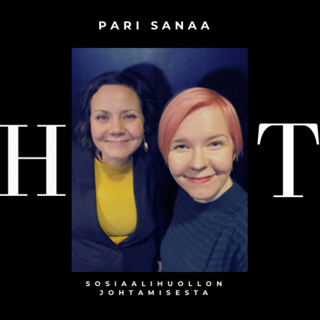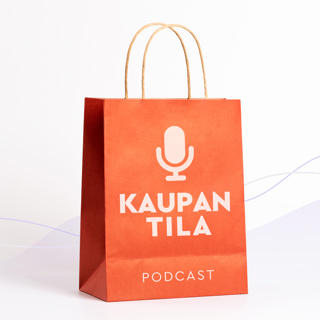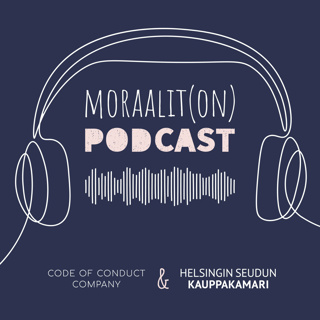
#114: Interview with Andrew McKee: On quitting a PhD and a journey of self-discovery
Sometimes life hits you hard, and then you have to make new decisions you hadn't imagined making. Previous goals and ambitions can evaporate, especially after enduring something emotionally, psychologically, and/or spiritually harrowing. Our guest Andrew McKee was tested by tragedy, on top of career confusion, when he entered an MD/PhD program but realized midway he wasn't on the right track. He decided to quit his PhD and embarked on a journey of experimentation and self-discovery. Today, Andrew has 20+ years of experience in biotechnology, pharmaceuticals, diagnostics and healthcare sectors. He is the CEO and founder of Headland Strategy Group, a consultancy firm with offices in the US and Asia and specialising in growth strategy for therapeutics and diagnostics companies. Andrew has previously worked for McKinsey and Company, Google, Genentech and holds biomedical engineering and MD degrees from Duke University. He also is a published writer and holds patents licensed to industry. He is a husband, a father of 3 children, and a professional saxophonist. In today's episode, our host Tina Persson welcomes Andrew McKee. They talk about how Andrew, even after quitting his PhD, made such an impressive career. They discuss music, art, entrepreneurship, and the importance of networking with people from different walks of life. He also gives insights into his life and about his life mentors who advised him to take a leap of faith. On the cusp of a critical life decision, one of Andrew's mentors "...encouraged me that if I take time to reflect and get still, I probably know more than I realise [about what I should do]." If you want to learn more about Andrew's successful journey, including different ideas for facing major life challenges, make sure to listen to this episode. For the show transcript, please click here: https://phdcareerstories.com/pub/amckee PhD Career Stories is now on major social media channels. To receive more content regularly, follow us on YouTube, LinkedIn, Instagram, Facebook, and our Website.
15 Loka 202239min

#113: Interview with Isabeau on strategies for making better career decisions
Have you spent so much time thinking through career choices that you could make but ended up making no decision at all? Sounds familiar? This is called analysis paralysis, which is very common among perfectionists. In this episode, one of our PhDCS team members, Santoshi Devadas, had the pleasure to interview Isabeau Iqbal who helps ambitious perfectionists in higher education. She guides them to overcome analysis paralysis and move forward with their goals. Isabeau is a certified career and life coach with more than 20 years of experience supporting academics and faculty members in their professional growth. In addition to her career services, she also has her YouTube channel where she regularly shares tips and tricks with her audience. During the interview, Isabeau provides us with approaches to network efficiently, job searching strategies and ways to better know your values. She also shares the importance of knowing your strengths. Check out the episode resource section to find the links to the strengths assessments mentioned. In the end, Isabeau left three main takeaway messages: Take the initiative! Network! Get to know your values and strengths! …" these seem quick tips but they require time investment from your side"... said Isabeau. If you want to learn more about ways of overcoming your indecisiveness and taking the next step in your career, this episode is for you! Enjoy it! PhD Career Stories is now on major social media channels. To receive more content regularly, follow us on YouTube, LinkedIn, Instagram, Facebook, and our Website. Episode Resources: Free - VIA Character Strengths Survey: https://www.viacharacter.org/ Free at present - Standout by Marcus Buckingham: https://www.marcusbuckingham.com/ Free - High5: https://high5test.com/ Paid - CliftonStrengths Assessment: https://www.gallup.com/cliftonstrengths/en/252137/home.aspx
9 Syys 202244min

#112: Mark Herschberg on how to train to become an entrepreneur: Tips and Tricks
In this episode, Tina Persson talks to Mark Herschberg about how to learn to become an entrepreneur. Mark's recently published book "The Career Toolkit, Essential Skills for Success That No One Taught You" gives deeper insights into this topic. Mark has a diverse background ranging from Physics, Electrical Engineering, Computer Science, and Cryptography, to extensive business expertise. His wide experience has enabled him to launch and develop new ventures at start-ups and Fortune 500s. In addition to this, Mark also annually teaches in the Undergraduate Practice Opportunities Program, famously known as MIT's "career success accelerator". During the conversation, Tina asked Mark about who is an entrepreneur, how to train to become an entrepreneur, and what are the challenges in it. Mark addresses these questions and many more such as describing types of entrepreneurs, the required mindset, and how to find business opportunities. Finally, Tina inquired about his three top tips for starting a company: Create a supportive business network in different fields. Look for a co-founder, make sure you are compatible, and make written agreements. Don't worry about being right. Just try not to be wrong. It means that when you build a product, you should keep other possible options around as long as you can, and at the lowest costs possible. Is being an entrepreneur the next chapter in your life? If so, you cannot miss this episode! Enjoy listening! For show transcript please click here: https://phdcareerstories.com/pub/mherschberg PhD Career Stories is now on major social media channels. To receive more content regularly, follow us on YouTube, LinkedIn, Instagram, Facebook, and our Website.
12 Elo 202242min

#111: Interview with Niba about the turning point in her career
In this episode, Tina Persson interviews Niba Audrey Nirmal, a science communicator. Niba is dedicated to hosting and producing science videos related to plants, skincare and cosmetics. If you are curious, you can find Niba's work on her YouTube channel NotesByNiba. During the interview, she shares her career path and talks about her decision to not pursue her PhD further. She also tells us about the factors that drove her to follow a career in Science Communication. In addition, she openly talks about her confidence levels in pre- and post-academia times, her journey in searching for a job outside academia and finally she shares her networking strategies. At the end of the conversation, she gives some important tips for all graduates: Do not isolate yourself! Be communicative with your support network (family, friends, etc) and ask for help when you need it. They are there to help you! Every time you have an informational interview with someone related to your career interests, ask them to recommend three other people from their network so that you can build your own network further. A steady workload does not mean you are not doing enough in your career. Are you making a transition from academia? If so, you should definitely listen to this episode and take these tips with you. Enjoy this episode! For show transcript click here: https://phdcareerstories.com/pub/qzm8y2t9 PhD Career Stories is now on major social media channels. To receive more content regularly, follow us on YouTube, LinkedIn, Instagram, Facebook, and on our Website.
8 Heinä 202235min

#110: Interview with Headhunters from GE Hunter
In this episode, Tina Persson interviews Grażyna Żywot-Ciecierska and Ola Samuelsson, who are co-founders of a global company called GE Hunter. They are experts in headhunting, recruitment and client advisory. They have 20 years of international experience in finding talents for the pharma, fast-moving consumer goods (FMCG), medical, industrial and more sectors. Ola Samuelsson specializes in roles within Finance, Supply Chain, IT and Manufacturing, while Grażyna Żywot-Ciecierska's expertise are roles within General Management, Sales, and Human Resources. In the interview, the guests talk about the headhunting process such as identifying the most suitable candidates to the right companies and positions. This involves a well-structured process where candidates are coached to identify their interests and motivations. Finally, they match what candidates are looking for with the client's expectations and vice-versa. At the end of the episode, they share important tips for PhD candidates who are looking for jobs: 1. Be passionate about your interests. 2. Be motivated. 3. Be yourself. 4. Be social and communicate frequently. Are you in the job searching phase of your career? If so, you should definitely listen to this episode and take these tips with you. Enjoy the interview! For show transcript, please click here: https://phdcareerstories.com/pub/zgms85xt PhD Career Stories is now on major social media channels. To receive more content regularly, follow us on YouTube, LinkedIn, Instagram, Facebook, and on our Website.
10 Kesä 202239min

#109: Kathleen Champlin Story
Kathleen Champlin graduated with a doctorate in Contemporary American Literature from Ball State University in Indiana (USA) in 2015. Currently, she is an online writing tutor with Pearson's Smarthinking and a copyeditor for several companies. In this episode, Kathleen will provide an example of a disabled PhD's career transition in the humanities. From her story, you can learn how her disability impacted her academic and professional paths and how she was able to overcome the many barriers that came up along the way. Kathleen will also share how her love for the written word has been a driving force throughout her journey and how she hopes to contribute to a world without ability barriers. Enjoy listening! For show transcript click here: https://phdcareerstories.com/pub/odduft04 PhD Career Stories is now on major social media channels. To receive more content regularly, follow us on YouTube, LinkedIn, Instagram, Facebook, and on our Website.
13 Touko 202215min

#108: Adriana Bankston Story
In this new episode, Adriana Bankston tells us about her career story. Adriana is a Principal Legislative Analyst at the University of California Office of Federal Governmental Relations in Washington, DC, where she serves as an advocate for the university with Congress, the administration and federal agencies. Adriana grew up in a family of scientists, which made her interested in pursuing a research career. She earned her PhD in Biochemistry from Emory University and later on she managed to transition into science policy through a number of volunteering opportunities. While exploring the several options, she became interested in academic training and the connection between science and society and got involved in organizations that work on training the next generation of scientists. Along the way, she held some leadership positions where she built her brand in science policy coupled to training activities and got involved with non-profits that advocate for early career trainees. This has opened a new avenue to her to connect federal policy to university research and training the next generation of scientists. And made her realize that it is a path for her! Finally, Adriana shares key skills and qualifications that one needs in science policy: Be used to fast-paced environments. Prioritize projects and be able to shift from one to another. Look at how you might be able to impact policy in real time by responding to agency requests for information or contributing to legislation. Interested in policy and science? Listen to this episode to get insights into policy roles and skills for a career path in science policy. Maybe it will also be a path for you? Enjoy listening! The interviewed author expressed their personal views and not the views of their employer. For show transcript click here: https://phdcareerstories.com/pub/z2hfd5ou PhD Career Stories is now on major social media channels. To receive more content regularly, follow us on YouTube, LinkedIn, Instagram, Facebook, and on our Website.
8 Huhti 202210min

#107: Rachel Kindt Interview
In this episode, Tina Persson interviews Rachel Kindt. After a PhD in Biology and a postdoctoral fellowship, Rachel dove headfirst into the biotech world, working her way from the lab bench to the corporate boardroom over her 20+ year career. Leveraging her scientific training and acquired - some might say improvised! - business savvy, she led drug development teams and built high-performing organizations. Rachel is known as a master facilitator, dedicated coach and mentor, and keen thought partner in scientific leadership. She is now coaching, consulting and co-authoring a book of career advice for scientists. Rachel tells us about her exciting journey and career path that took her from a bench scientist, to leading a research collaboration, to being a leader and project manager in drug development. Project management is a focus topic in this interview. What is a project manager? What are the skills required for a project manager role? How to grow as a project manager and how long does it take to be good in this role? What managerial titles do we have today? And what is the difference between a project manager, a program manager and a team manager? All these questions - and much more - are answered by Rachel. Finally, Rachel closes the episode sharing three tips for people applying for project manager roles: Learn the language of project management. Look at what you have done that is already project management. Focus on the people's aspect of the work you have done versus the technical aspect. Listen to this episode to get inspired by Rachel's journey and her valuable tips for a successful project management career path.
11 Maalis 202245min





















